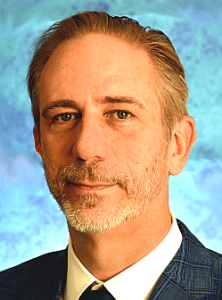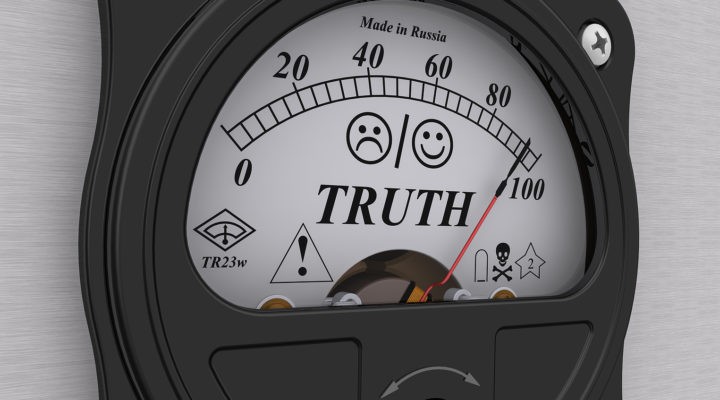“I have no greater joy than this, to hear that my children are walking in the truth.” — 3 John 4
With this post, we make our first turn to truth as a moral issue. We will not begin with the old debate about whether the obligation to tell the truth is absolute or might admit exceptions. That was a debate about moral quandaries and the relative strength of the moral rule prohibiting lying. It was a conversation from an era in which people took moral rules seriously. That is not where we are right now.

(Bigstockphoto)
Instead, I want to explore the prior issue of truth as a spiritual and character issue. Rule ethics asks about what we are allowed or commanded to do or not do. Character ethics asks about what kind of people we should seek to be. Rule ethics prescribes actions. Character ethics prescribes virtues — and proscribes vices.
The New Testament, when it speaks about truth in the mystical-participatory-eschatological strand that I discussed in my last post, offers some highly original and deeply fascinating treatments of the place of truth and truthfulness in the character of Christian disciples.
For the Johannine tradition, followers of Jesus know the truth (1 John 2:21) and tell the truth (John 19:35). But more profoundly, disciples are “from the truth” (1 John 3:19) and “in the truth” (2 John 1:1); the “truth abides in” them (2 John 1:2). They are made holy, or sanctified, “in the truth” (John 17:17).
Disciples of Christ dwell in truth and truth in them. Out of this spiritual-characterological state flow truthful lives. Disciples “walk in the truth” (2 John 1:4; 3 John 3-4). Those who make false or self-deceptive statements reveal that the truth is not in them (1 John 1:8). Those who claim knowledge of Christ but do not obey his commands reveal that their claims were a lie and that there is an absence of truth in them (1 John 2:4; John 14:15). The famous text of John 8:31-32 seems to turn it around a bit: “If you hold to my teaching, you are really my disciples. Then you will know the truth, and the truth will set you free.” Obedience here deepens knowledge of the truth and the freedom truth brings.
“Truth is a spiritual reality that dwells ‘in us,’ in the moral core of believers’ lives.”
As we broaden our gaze beyond Johannine literature, we see shifting metaphors but similar ideas. Truth is not just something believed in or even spoken by us. Truth is a spiritual reality that dwells “in us,” in the moral core of believers’ lives (Psalm 51:6). We know that truth is worthy of our seeking (Jeremiah 5:1-3) and our love (Zechariah 8:19; 2 Thessalonians 2:10). Truth becomes a path that we follow intentionally (2 Timothy 2:18; James 5:19), or viewed another way, a place that we inhabit (2 Peter 1:12).
Truthfulness emerges in our words and actions because we already were deeply committed to truth in our inmost being. Whether we lie and deceive or instead speak the truth reflects our moral core (Psalm 5:9; Proverbs 8:7; 12:20; Jeremiah 9:3). For people who dwell in truth, there is no point in dabbling in falsehood in any arena of life; indeed, it is positively dangerous — except perhaps for moral emergency situations (discussed in my first post).
Discipleship involves stripping away all falseness and instead living in truth — buckling “the belt of truth” around one’s waist, as Paul put it (Ephesians 6:14). Believing lies is the path to immorality and disobedience and must be rejected (Romans 1–2). Christian existence includes putting away falsehood and various other sins of speech in all their manifold varieties — deceit, guile, cunning, dissembling, misleading, boasting, flattery, cursing, slander, verbal ambushing, all malicious and wrongful speech (Psalm 57:4, 64:3; Jeremiah 9:8; 1 Corinthians 5:8; Colossians 3:9; 1 Peter 3:10; James 3:1-12).
“Spirituality is the core of character, and character is the core of action.”
These texts suggest that spirituality is the core of character, and character is the core of action. Or, in Christian terms, a lived commitment to Christ, who is the Truth, is the foundation of a character that dwells in truth, and a way of life of walking in the truth.
If we find ourselves routinely straying from the truth in our words and in our deeds, we must ask about the level of health of our internal spiritual root system, which is required to sustain truthful living.
Another implication is that a thoroughly corrupted spirit and character will yield all kinds of rotten fruit. It is most unlikely that attempting to impose rules, norms, or even laws atop such a person will make much of a difference. That would be like painting a house that already has been eaten by termites. Or like making somebody swear an oath to tell the truth when they long ago lost access to truth in their spirit and character.
 David Gushee serves as Distinguished University Professor of Christian Ethics and director of the Center for Theology and Public Life at Mercer University. He is the past-president of both the American Academy of Religion and Society of Christian Ethics. He is an author or editor of 25 books. His most recognized works include Righteous Gentiles of the Holocaust, Kingdom Ethics, The Sacredness of Human Life, and Changing Our Mind. He earned the Ph.D. from Union Seminary. He and his wife, Jeanie, live in Atlanta.
David Gushee serves as Distinguished University Professor of Christian Ethics and director of the Center for Theology and Public Life at Mercer University. He is the past-president of both the American Academy of Religion and Society of Christian Ethics. He is an author or editor of 25 books. His most recognized works include Righteous Gentiles of the Holocaust, Kingdom Ethics, The Sacredness of Human Life, and Changing Our Mind. He earned the Ph.D. from Union Seminary. He and his wife, Jeanie, live in Atlanta.
Other articles in this series:


